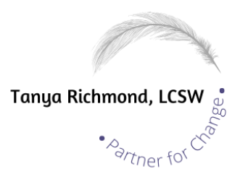You can find purpose and meaning in life. My goal is to create a compassionate and understanding space where you can explore your experiences and discover the path that leads to a more fulfilling life.
A Safe Space for Growth and Connection
True self-discovery begins in a space where you feel safe, supported, and seen. I work to build a strong, trusting connection with each of my clients—one that fosters growth, resilience, and the courage to be vulnerable.
Growing up in rural southern Louisiana, I experienced firsthand the lasting impact of natural disasters. Those experiences shaped my understanding of trauma and the power of post-traumatic growth. I know that healing and transformation are possible—and that you can come out of difficult times stronger and more grounded than ever.
Together, we’ll navigate life’s challenges and create the balance and clarity you’re seeking.
Exploring the Balance Between What is Important to You and What is Important for You
Finding the right balance-your own balance- between what matters to you and what matters for you is key to understanding your values, passions, and goals—while also keeping real-life responsibilities in mind. We’ll dive into what truly drives you and explore how to align your actions with your priorities to create the balance you’re looking for.
Supporting You on Your Path
I’m honored to support you on your journey toward greater self-awareness and a more fulfilling life. In our work together, you’ll find a safe, empathetic space where you can freely express yourself without judgment.
My role is to guide you through self-discovery, offering tools, insights, and support to help you navigate challenges, grow personally, and find deeper purpose. This journey takes reflection, courage, and a willingness to embrace change—and you don’t have to do it alone.
If you’re ready to take that first step, I invite you to reach out and schedule a session. Let’s work together to align your life with your values and create the fulfillment you’re looking for.
Thank you for considering me as your partner in this meaningful work—I look forward to walking this path with you.

